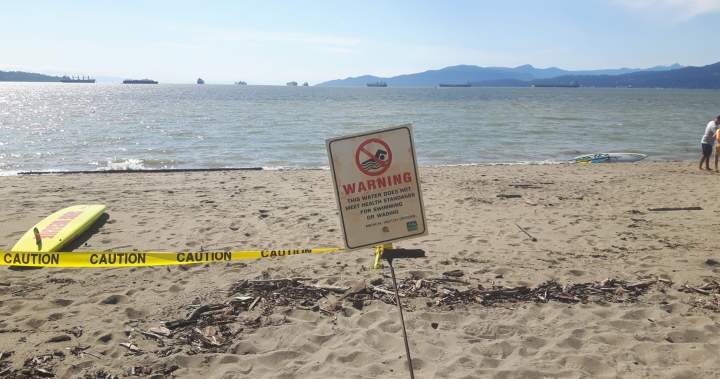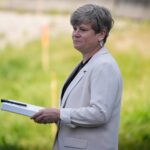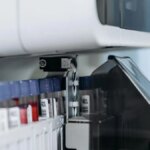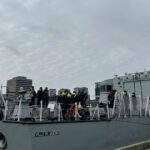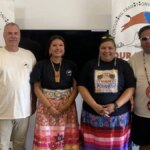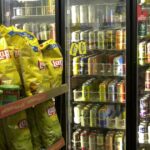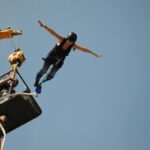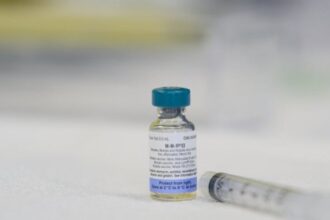The sparkling waters and sandy shores of Metro Vancouver’s popular beaches have become no-go zones as health authorities report unprecedented E. coli contamination levels, forcing the closure of multiple beach sites during what should be the peak of summer enjoyment.
At Sunset Beach, where families typically gather for picnics and swimming, warning signs now greet visitors, advising against any water contact after tests revealed E. coli concentrations exceeding 2,400 bacteria per 100 milliliters—nearly ten times the acceptable safety threshold of 200 per 100ml established by Health Canada.
“We’re seeing some of the highest contamination readings in recent years,” said Dr. Patricia Daly, Chief Medical Health Officer for Vancouver Coastal Health. “When levels reach these concentrations, the risk of gastrointestinal illness, skin infections, and other health issues becomes significant for anyone coming into contact with the water.”
The contamination crisis has expanded beyond Vancouver’s city limits, with health officials closing sections of White Pine Beach at Sasamat Lake in Port Moody and Centennial Beach in Delta. Testing conducted earlier this week showed dangerously elevated bacterial counts at these locations as well, expanding the scope of the public health concern throughout the region.
Environmental health experts point to multiple factors contributing to the contamination surge. “We’re dealing with a perfect storm of conditions,” explained Dr. Michael Thompson, environmental microbiologist at the University of British Columbia. “The recent heavy rainfall followed by extreme heat created ideal conditions for bacterial growth, while simultaneously washing contaminants from urban areas into our waterways.”
The Metro Vancouver Regional District has initiated emergency protocols, increasing water sampling frequency from weekly to daily at affected locations. Officials are working to identify potential contamination sources, with suspicion falling on stormwater runoff, sewer cross-connections, and possibly wildlife contributions.
For local businesses depending on summer beach traffic, the closures represent yet another economic setback. “After struggling through pandemic restrictions, we were finally seeing normal customer levels again,” said Marissa Chen, owner of Sunset Beach Snack Bar. “Now we’re back to barely covering daily operational costs with the beach essentially empty.”
The timing couldn’t be worse for tourism operators, who rely heavily on Vancouver’s natural attractions during the summer months. Hotel bookings near affected beaches have seen cancellations spike by 15% since the closures were announced, according to the Vancouver Hotel Association.
City officials emphasize that while water contact is prohibited, beaches remain open for non-water activities. “Visitors can still enjoy picnics, sunbathing, and walking along the shore,” noted Park Board Commissioner Jessica Wilson. “We’re simply asking people to respect the water advisories for their own safety.”
Health authorities cannot yet provide a timeline for when beaches might reopen, as bacterial levels remain unpredictable. Officials recommend that residents seeking water recreation visit alternative sites like Kitsilano Pool or indoor swimming facilities until conditions improve.
This contamination event raises important questions about the long-term sustainability of urban waterfront areas as climate change intensifies. As our coastal cities face increasing pressure from extreme weather events, how will we balance development with the protection of our natural recreational spaces for future generations?

